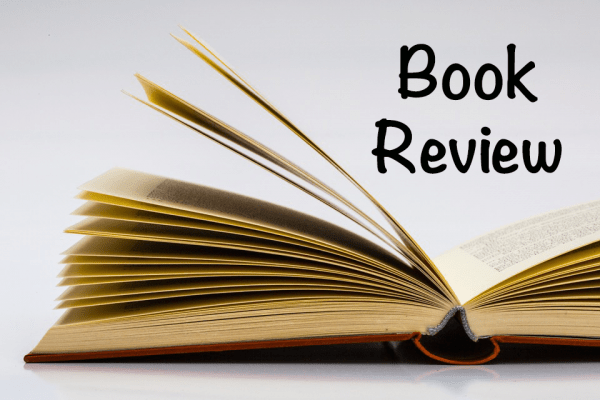Introduction
Books have the power to transport us to different worlds, ignite our imaginations, and evoke a range of emotions. Book reviews act as guides, helping us navigate the vast landscape of literature and discover the hidden gems that await. In this article, we delve into the world of book reviews, exploring their importance, impact, and how they contribute to our reading experiences. Whether you’re a book enthusiast seeking recommendations or a curious reader looking for insights, join us on this literary journey through the realm of book reviews.
The Significance of Book Reviews
Book reviews serve as vital components of the literary ecosystem. Here are a few reasons why they hold significant importance:
1. Informing and Guiding Readers
Book reviews offer insights, summaries, and critical assessments of books, guiding readers in their selection process. They provide a glimpse into the themes, writing style, and overall quality of a book, helping readers make informed decisions about what to read next. Reviews act as trusted recommendations, saving readers from the disappointment of investing time in books that may not align with their preferences.
2. Fostering Dialogue and Discussion
Book reviews serve as catalysts for conversation and communal experiences. They ignite discussions among readers, allowing them to share their thoughts, interpretations, and emotions evoked by a particular book. Reviews facilitate literary communities, both online and offline, where readers can connect, exchange ideas, and delve deeper into the nuances of a book’s content.
3. Supporting Authors and the Publishing Industry
Book reviews play a pivotal role in supporting authors and the publishing industry. Positive reviews help generate buzz, increase visibility, and attract new readers to an author’s work. They contribute to the success of a book, potentially leading to higher sales and recognition. Reviews also provide constructive feedback to authors, helping them refine their craft and grow as writers.

The Art of Writing Book Reviews
Writing a compelling and informative book review requires a delicate balance of personal opinion, critical analysis, and engaging storytelling. Here are a few key elements to consider when crafting a book review:
1. Summarize the Plot and Themes
Begin your review by providing a brief summary of the book’s plot, without revealing major spoilers. Highlight the central themes and motifs explored in the narrative, giving readers a glimpse into the book’s content and overarching ideas.
2. Assess Writing Style and Execution
Evaluate the author’s writing style, commenting on the quality of prose, use of language, and overall storytelling prowess. Discuss the effectiveness of the narrative structure, character development, and pacing. Engage readers by sharing your impressions of how the writing contributed to the overall reading experience.
3. Express Personal Opinions and Reactions
Share your personal opinions and emotional reactions to the book. Discuss how the story resonated with you, the impact it had on your thoughts and emotions, and any specific aspects that stood out. However, it’s essential to substantiate your opinions with examples from the book, allowing readers to understand the basis for your assessment.
4. Provide Balanced Criticism
While expressing your opinions, strive for balanced criticism. Acknowledge both the strengths and weaknesses of the book, highlighting areas where it excelled as well as aspects that could have been improved. This approach offers a fair assessment and allows readers to make their own judgments.
5. Consider the Target Audience
Keep in mind the target audience of the book when writing your review. Consider whether the book would appeal to its intended readership, whether it aligns with specific genres or interests, and any potential audience preferences that should be taken into account.
Frequently Asked Questions (FAQs)
1. How Can I Find Reliable Book Reviews?
Reliable book reviews can be found in reputable literary publications, book blogs, and online platforms dedicated to book discussions. Websites like “Goodreads” and “Book Riot” offer a wide range of reader reviews, while publications such as “The New York Times Book Review” and “The Guardian Books” provide professional critiques. It’s advisable to explore a variety of sources to get a well-rounded perspective.
2. Are Book Reviews Objective?
Book reviews are inherently subjective, as they reflect the opinions and experiences of the reviewer. However, a well-crafted review should provide a balanced assessment, incorporating both personal reactions and objective analysis of the book’s elements such as writing style, plot, and character development.
3. How Long Should a Book Review Be?
The length of a book review can vary depending on the platform and purpose. Online reviews are typically shorter, ranging from a few paragraphs to a page, while professional reviews in print publications may be longer and more in-depth. Regardless of length, the review should concisely capture the key aspects of the book and offer valuable insights to readers.
4. Should I Include Spoilers in My Book Review?
It’s best to avoid major spoilers in a book review to preserve the reading experience for others. While it’s acceptable to discuss general plot points and themes, be mindful of revealing significant plot twists or key surprises that may diminish the reader’s enjoyment.
5. Can Negative Book Reviews Impact Authors?
Negative book reviews can have an impact on authors, as they can potentially affect sales and readers’ perceptions. However, constructive criticism can also provide authors with valuable feedback to improve their future works. It’s essential to express negative opinions respectfully and provide clear reasons for your assessment.
6. How Can I Write a Book Review That Stands Out?
To write a book review that stands out, focus on offering unique insights and perspectives. Engage readers by sharing personal anecdotes or connections to the book’s themes. Avoid generic statements and strive to provide an authentic and compelling assessment that sparks curiosity and discussion.
Conclusion
Book reviews are invaluable companions on our literary journeys, guiding us through the vast universe of books and enriching our reading experiences. They inform, inspire conversations, and support authors and the publishing industry. Whether you’re writing a review or seeking recommendations, embrace the art of book reviews and let them illuminate your path to captivating stories and boundless literary adventures.
============================================


